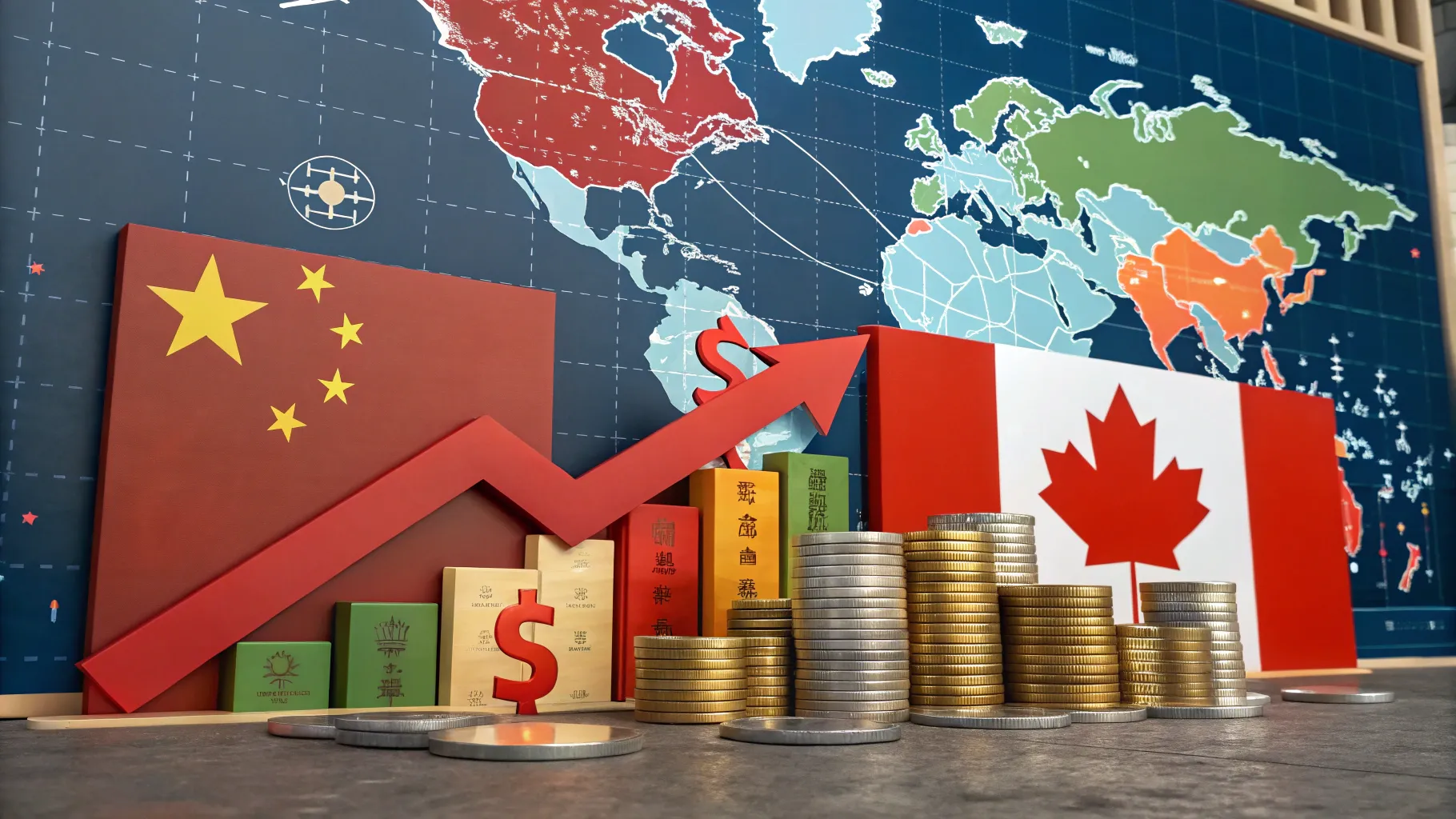Feb 3, 2025
Financial Market Analysis: The Impact of Trump's Tariffs

Hey everyone, this is Durumi from Talk Stock Make Easy! Today, we’re diving deep into the recent shockwaves sent through the global financial markets by President Trump’s new tariffs on Canada, Mexico, and China. We’ll explore how these tariffs affect the economy, financial markets, and what strategies investors should consider moving forward. So, let’s get started!
Understanding Trade Theories
Before we dive into tariffs, let’s lay a solid foundation by discussing trade theories. The three primary theories are:
- Ricardian Comparative Advantage: This theory emphasizes that countries should specialize in producing goods where they have a lower opportunity cost.
- Heckscher-Ohlin Model: This model focuses on how a country’s factor endowments affect its trade patterns.
- New Trade Theory: This modern approach considers economies of scale and network effects in international trade.
Understanding these theories is crucial as they help explain why tariffs can disrupt established trade relationships and economic balances.
What Are Tariffs?
So, what exactly are tariffs? Simply put, tariffs are taxes imposed on imported goods. Their main purpose is to protect domestic industries from foreign competition by making imported goods more expensive. There are various types of tariffs, including:
- Ad Valorem Tariffs: A percentage of the total value of the imported goods.
- Specific Tariffs: A fixed fee based on the quantity of the goods.
- Compound Tariffs: A combination of both ad valorem and specific tariffs.
While tariffs aim to protect local industries, they can also lead to increased prices for consumers and potential retaliation from trading partners.
Political Implications
Now, let’s discuss the political implications of tariffs. Are tariffs the modern equivalent of economic warfare? Absolutely! When one country imposes tariffs, it often leads to retaliatory measures from affected nations, escalating tensions and potentially leading to trade wars. This dynamic can disrupt global supply chains and create uncertainty in financial markets.
Impact on Forex Markets
Moving on to the foreign exchange (forex) markets. The imposition of tariffs has resulted in a stronger dollar, which has caused the Korean Won and British Pound to weaken. This shift can affect importers and exporters significantly, as currency fluctuations impact the cost of goods and services traded internationally.
Bonds and Interest Rates
Next, let’s look at the bond market. Following the tariff announcements, bond prices have fallen while yields have risen. This reaction indicates that investors are anticipating economic instability and are demanding higher returns for the increased risk associated with holding bonds in this environment.
Stock Market Impact
What’s the outlook for stock markets across Asia, Europe, and the U.S.? The immediate reaction has been negative. The KOSPI index in South Korea and other major indices have seen declines as investors reassess their positions in light of heightened risk. For instance, companies that rely heavily on exports may face pressure due to fluctuating demand and increased costs.
Future Outlook & Investment Strategies
Looking ahead, we need to consider China’s countermeasures and their implications for rare earths, IT, and aerospace investments. China has significant leverage in these industries, and their response to tariffs could reshape global supply chains. Investors should keep an eye on these developments and consider diversifying their portfolios to mitigate risks.
Mindset Control: Crisis is an Opportunity!
Lastly, let’s talk about mindset. In times of crisis, it’s essential to view challenges as opportunities. While tariffs are a definite market risk, they also present chances for savvy investors to find undervalued assets and reposition their portfolios strategically. Remember, the key is to stay informed and adapt to the changing landscape.
Conclusion
In conclusion, the financial market analysis surrounding Trump’s tariffs reveals a complex interplay of economic theories, market reactions, and political implications. Until the financial markets fully absorb the impact, it’s crucial for investors to adopt a cautious investment strategy. Keep an eye on real-time changes in forex, stocks, bonds, and commodities, and be prepared to respond strategically. Thanks for joining me today, and let’s navigate these turbulent waters together!
Don’t forget to subscribe and turn on notifications for real-time economic analysis!